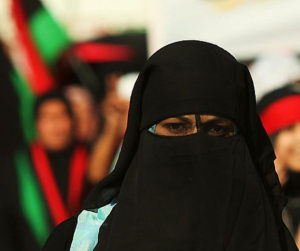
Article was originally posted at: http://www.unhcr.org/news/latest/2017/10/59e75e0d4/women-fleeing-fgm-find-abuse-in-libya.html
Aisha (not her real name) was seven years old when she underwent the procedure in her native Ivory Coast. Her eldest daughter was four when it happened to her. Last year Aisha fled with her youngest daughter to save her from being cut.
But instead of finding safety, she was caught in the vicious reality of smuggler networks. In captivity, she experienced a 9-month-long nightmare, where she experienced repeated abuse and witnessed the killings of people held with her.
UNHCR, the UN Refugee Agency, calls for measures to prevent risks of sexual and gender-based violence and for safe legal pathways for people fleeing persecution.
On Tuesday (October 17) UNHCR expressed concern over the deplorable conditions in which refugees and migrants are being held in Libya.
It said that for over a week, UNHCR teams had been working around the clock to meet the urgent needs of over 14,500 migrants and refugees who were being held captive by smugglers in different locations, including farms, houses and warehouses in and around the coastal city of Sabratha in Libya.
The refugees and migrants were taken to a hangar in the Dahman area in Sabratha that has been serving as an assembly point since the onset of the crisis. From there, refugees and migrants are being transferred by authorities to official detention centres where humanitarian agencies are providing lifesaving assistance.
Libyan authorities estimate that an additional 6,000 migrants and refugees are still being held by smugglers. If confirmed, this would bring the total number of refugees and migrants held in Sabratha to 20,500, including those in official detention centres.
Since the onset of this humanitarian crisis, UNHCR staff have been on the ground providing emergency assistance in all locations where refugees and migrants have been transferred to, and are conducting assessments to determine needs and vulnerabilities.



